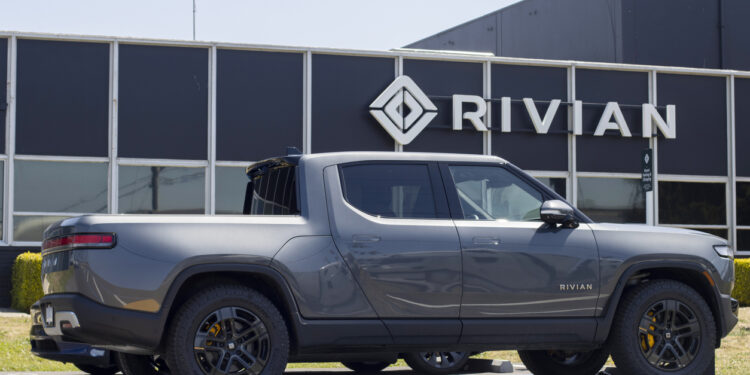EV maker collaborates with Google for a first-of-its-kind map experience that blends Rivian’s EV-specific features with Google’s powerful location data
Rivian (RIVN) is introducing a major update to its in-car navigation system through a new collaboration with Google, bringing a deeply integrated and customized version of Google Maps to its electric vehicles. The rollout, now underway via a software update, marks the culmination of an 18-month joint development effort between Rivian and Google engineers.
Unlike traditional integrations such as Android Auto or Google built-in, this custom version is uniquely Rivian. The navigation retains Google Maps’ robust core features—like real-time traffic updates, satellite imagery, and place data—but overlays them with Rivian’s proprietary interface and EV-centric tools. These include trip planning, estimated range on arrival, charging stop suggestions, and ratings of charging stations based on real Rivian vehicle data.
“We closely watched customer feedback, and one area where we saw room for improvement was navigation,” said Wassym Bensaid, Rivian’s Chief of Software. Rather than improving incrementally, Rivian pursued a full-scale revamp in partnership with Google, aiming for a seamless and highly functional experience tailored specifically to EV drivers.
The collaboration opens up access to Google Maps at the API level—a departure from Google’s usual automotive integrations—allowing Rivian to build an experience that feels native to its vehicles while harnessing Google’s data strength.
The update also enhances the Rivian mobile app, adding features like traffic insights, place photos, and improved trip sharing between the app and the vehicle. Users with a Connect+ subscription can access satellite views and traffic incidents as well.
This move reinforces Rivian’s focus on delivering premium software experiences, which has become a strategic differentiator as it forms high-profile partnerships—most notably with Volkswagen—in the competitive EV market.
You might like this article:BlackRock Hits $12.5 Trillion in Assets, But Revenue Miss Spurs Stock Slide











